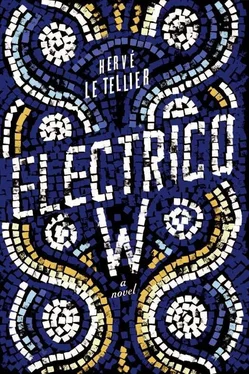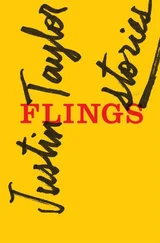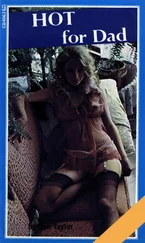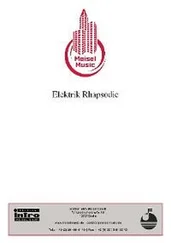“When I went to France I read Voltaire’s poem about the Lisbon disaster. I even learned it by heart:
When you see all these victims will you say:
God is avenged, their lives for their crimes do pay?
For what crimes, what sins can children be found needing ,
That now on their mothers’ breasts lay crushed and bleeding?
“Yes, I knew it by heart. I sometimes think it was here in 1755, during the earthquake, that God died. And then four years ago …”
He stood in silence awhile, his expression vacant, then, without looking at me, he asked, “Do you know about the carvoejadores in Brazil?”
Yes, I knew about them. Carvoejadores meant people “cursed by charcoal.” Children of six or seven gleaming with sweat and black with soot, working from dawn till after dark next to huge ovens burning eucalyptus wood. I had read an article about them years earlier. Antonio sat down on a block of stone, picked up a twig, and traced a circle in the dust.
“I did a photo-reportage for a German paper that paid well. It was on a large fazenda in Rondonia. They cleared several hectares of forest every day. I didn’t have permission to be there, but I greased the guards’ palms. The owners, the fazendeiros , made those kids work fifteen- or sixteen-hour days, for a couple of bowls of sugared cinnamon rice a day. Before having a barbecue, believe me, you should check where the charcoal comes from.
“I remember one tiny little boy, they called him Bombinha. That’s the name they use for a moleque da rua , a little black street urchin. This Bombinha wasn’t as smart as those kids usually are. He must have been very shortsighted, he bashed into everything, he fell down a lot and didn’t recognize anyone unless they were close up, and even then he had to screw up his eyes. I don’t know how he’d managed to survive, or how he’d ended up there, and he himself couldn’t remember, it was as if fate had caught up with him and dropped him in that corner of hell. Fate, hell — just a pretty turn of phrase I used in the article. Recruiters used to kidnap those kids in the street, or just promise them food and somewhere to live. That was all it took.”
He stopped talking, clenching and unclenching his fist as if lost in his own anger.
“Why am I telling you all this?”
“I’m not sure … You were talking about God, about God dying.”
He gave a sad smile.
“Oh yes, the Good Lord … Bombinha got cut by a machete. On his leg. It wasn’t deep, okay. He must have just sat on it without realizing. But the wound became infected, it was suppurating, it was a hideous sight. We cleaned it and covered it with moss, he clamped his teeth together with the pain, but didn’t cry. But it kept getting worse. He got feverish, he was very sick. I started taking portraits of that kid, whole rolls of film, I don’t know why, maybe because he was the same age as our child would have been, Duck’s and mine, and while I took the pictures he would smile, he didn’t think about the pain so much. I used to talk to him: Give me a nice smile, Bombinha, I know it hurts, but smile, I would say. I brought the photos back to Europe, the newspaper wanted to negotiate a price …”
Antonio was talking more and more quickly, his voice quavering. All around us, tourists in short-sleeved shirts were taking photos of the lacework of broken Roman arches, some of them laughing loudly.
“There was an American priest who kept an eye on them, a good sort who brought them food, and sandals too, I think his name was David. A Protestant preacher who’d left Kentucky behind, about fifty, I’m not sure. He looked older than that. David his name was, yes, that’s right, David. Pretty symbolic, that name …”
He threw down the twig, picked up a little clod of earth and crushed it between his fingers. The soil fell to the ground in a fine dust, scattering ants beneath it.
“The guards didn’t dare kill him, I’m sure that was because he had an American passport but also partly because he paid them. He wrote to the American consul in Rio every week, asking for their help. Actually, he sent letters all over the place, the poor man, he begged me to tell people what I’d seen there, and particularly not to forget it. I don’t know where he lived, in some village, or a shack in the woods.
“When Bombinha was really ill the preacher came right away. He knelt down and prayed. Of course he knew medicine would have been more useful, just some antibiotics, but he’d run out, so there he was in that hut, holding the kid’s hand, stroking his clammy hot forehead and reading him the Bible. I took a picture of that too, there was hardly any light, maximum aperture, but I had the shakes and the image was out of focus. But fuck, it was beautiful, I took some Fujicolors and some 400 ASAs, really pushing them, they looked like something by De La Tour, you know, his Nativity . They didn’t want to run it in the paper. ‘Your picture’s out of focus,’ they said, ‘you can’t see a thing.’ What did the assholes want? For me to use a flash?”
Antonio was almost shouting. Tourists were giving us sideways glances, not quite daring to stare. Some were growing impatient, hovering around us, waiting for us to leave so they could get a photo of the whole convent.
“In the end they ran it with such a fucking dumb caption …”
Antonio took out a cigarette, which he didn’t succeed in lighting because of the wind and because he couldn’t get his fingers to work the lighter.
“In the end, the kid died, and when he did David was fast asleep beside him. Exhausted. He didn’t see it happen. And I wasn’t there either. When David woke and realized it was all over, he closed the boy’s eyes and called me. I took the picture, afterward. Bombinha looks like he’s sleeping in that shot, he looks restful. Really skinny, but restful. The other kids told us that just before he went, he whispered that he wanted his mother, he was delirious, asking for watermelon. David didn’t say anything, he gave a few cruzeiros to the guards for permission to bury him himself, with all the kids there. He dug a little grave, planted a little cross, said a little prayer …”
Antonio stopped talking, his chin was wobbling, his eyes shining, and I stood there, not knowing what to do. One of the tourists gave a smile, made a gesture to ask us to move aside, to get a picture. Antonio stood up, then he just looked at the high white arches and said, “Come on … We’re off.”

IT MUST HAVE BEEN one o’clock in the morning, I was reading the paper to try and get to sleep. The world was full of Bombinhas. Full of photographers too, framing the vulture behind the dying little girl, because sometimes death can be photogenic. “There were hundreds of little girls like her,” some guy from Gamma told me. “If we’d had to save her, we’d have ended up doing only that.” Only: adverbial part of speech implying restriction.
I couldn’t find it in me to feel sorry for him.
Someone once told me a good photographer had to take a pin with him. “Do you know why? To prick the baby in its mother’s arms. Because a picture with the baby crying is always worth an extra ten dollars.”
Who was it who told me that? Oh yes, Harry, that was one of Harry’s stories. At the time I laughed so much, it was terrible, but perhaps Harry wasn’t joking.
Harry was eighteen in 1944. He claimed to have been the youngest soldier at Omaha Beach, the youngest to come out of it alive, at least. He lied about his age to bring his call-up forward, so much so that when he reached Meaux in northern France he was barely nineteen and already a corporal. That may be a lie. With Harry, how do you know the truth from the lies? Either way, he got through dozens of rolls of film at Arromanches and Amiens, and in the Ardennes. He developed them at night, with developing fluid in GIs’ helmets. In his New Jersey apartment he still had pictures of Patton at Malmédy, kneeling before the bodies of American prisoners machine-gunned down by the Germans. Those were the first photos he ever sold, in March 1945, to Life . The ones that made him famous.
Читать дальше













